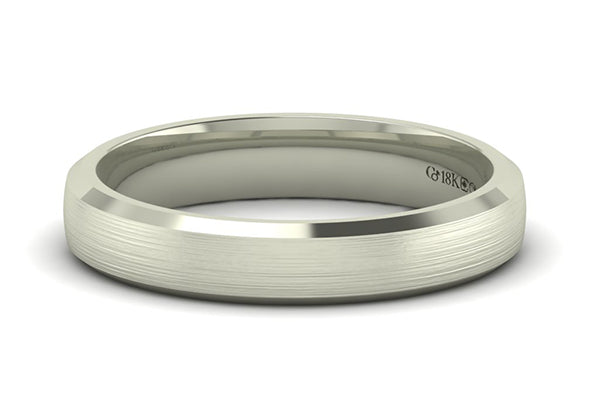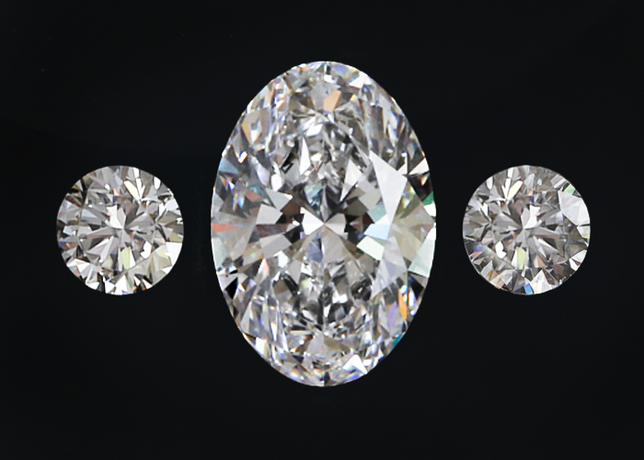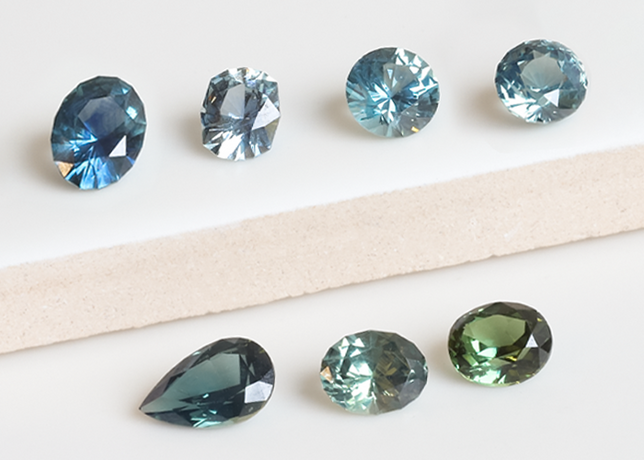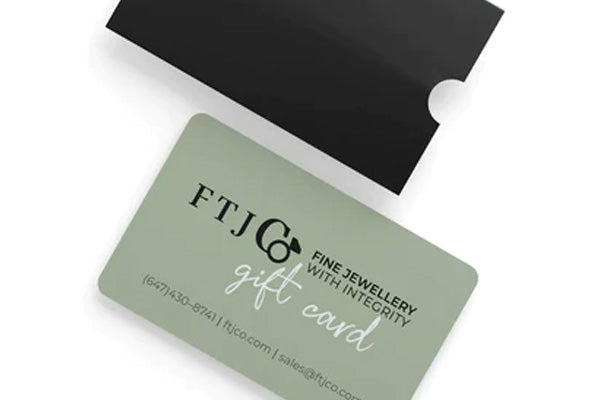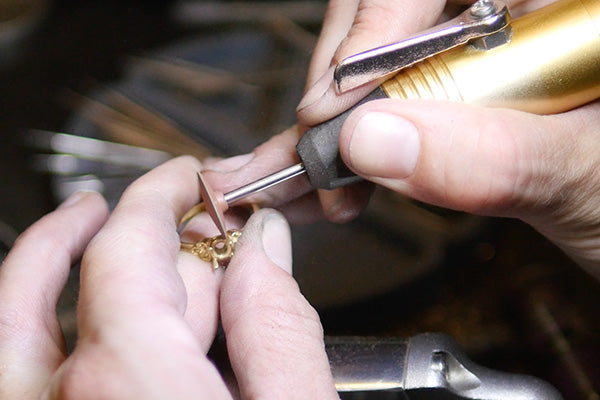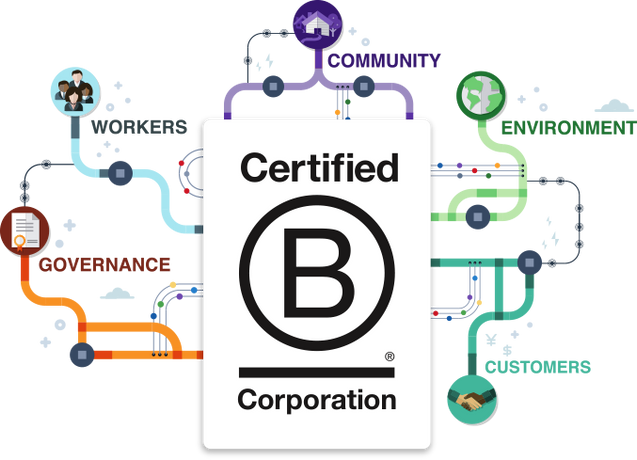ftjco-oecd-step-5-report
Fair Trade Jewellery Company
OECD Step 5 Report as at March 31, 2018
This report is published annually with quarterly updates published on an ‘as needed’ basis.
Introduction
The Fair Trade Jewellery Company (also known as ‘FTJCo’) is a federally incorporated Canadian company, corporation number 676400-2. Our due diligence manager is the co-founder of the company, Robin Gambhir (+1-647-430-8741, robin@ftjco.com).
The company is owned jointly, by the two co-founders: Robin Gambhir & Ryan Taylor and was founded based on the vision of providing consumers an option for buying jewellery made of ethically sourced materials. FTJCo is a certified member of the Responsible Jewellery Council, a Certified B Corporation, was the first jeweller in North America to use Fair Trade Gold and was the second jeweller in the world to use Fairmined gold.
Recently, FTJCo has been working with Canadian NGO, IMPACT, to engage in and support responsible sourcing and legal trade in conflict-free ASM gold from conflict-affected regions.
Section 1: Approach to Responsible Sourcing of Minerals
FTJCo is committed to implementing the OECD Due Diligence Guidance on Responsible Mineral Supply Chains from Conflict-Affected and High-Risk Areas. We understand that the due diligence is an ongoing process of engagement with the actors in our supply chains to identify, mitigate and address any risks identified in our supply chains that are outlined in the OECD Guidance. While FTJCo is a downstream actor in the jewellery supply chain, notably a jewellery manufacturer and retailer, we are committed to engaging with all actors in the supply chain down to the mine site level in order to ensure proper due diligence is carried out, but also so that we can understand the impacts of our supply chains on the people involved, both directly and indirectly. As such, our due diligence and risk assessments go beyond the point of refining into the upstream segment of the supply chain, and we work closely with partners working in the field or via well-established programmes for responsible sourcing, such as Fairtrade and Fairmined.
Section 2: Sources of gold
FTJCo sources gold from the following countries and standards:
Just Gold: Democratic Republic of Congo, mine sites in eastern DRC, in collaboration with NGO IMPACT, using the OECD Due Diligence Guidance as a framework.
Recycled Gold: Canada, United States
Please refer to our Provenance page for more information.
Section 3: Company Management Systems
Policy: In early 2018, Fair Trade Jewellery Company adopted a conflict-minerals policy which is available on its website and at its offices in Toronto, Canada. Going forward, this policy will be shared with all future suppliers and business partners.
Management structure: One staff member, Mr. Robin Gambhir, is in charge of due diligence and oversees operations, imports & exports. The company’s lead goldsmith, Kesha Frank, is in charge of metal orders and inventories. She reports directly to Mr. Gambhir. Ms. Frank orders metals in either alloyed or fine (pure) form from certified suppliers in the Fairtrade or Fairmined trading systems as well as recycled gold. The Just Gold imports are handled by Mr. Gambhir who oversees the import, compliance documents, refining and chain of custody for that gold. Currently, the company is the only jeweller manufacturing and retailing Just Gold.
Supply Chain Due Diligence:
Supplier information: Fair Trade Jewellery Company keeps a list of all active (and past) suppliers of minerals and keeps files for each mineral supplier, including Know Your Customer (KYC) forms where applicable.
With the exemption of Just Gold, minerals are sourced either through the closed supply chains of the Fairtrade or Fairmined standards or from suppliers that are certified by the Responsible Jewellery Council[1].
For Just Gold in DRC, gold from the 6 Just Gold sites–all of which have been validated ‘green’ by the Government of the DRC– is sold by a registered cooperative, CODEMA, to a legal exporter, Fair Congo, which then exports the gold to FTJCo. A green validation of a mine site in DRC means that the government, through a multistakeholder process, has assessed the site as not having any serious risks present at that time, including the presence of or illegal taxation of a mineral supply chain by an illegal armed group, use of child or forced labour, or illegal control of mine sites by public security or private security forces. All six sites in the Just Gold project were validated green in February 2016 through a Ministerial Decree.
Through IMPACT, FTJCo has access to all of the pertinent information, including the miner’s ID card, cooperative membership cards, and relevant licenses. All of the data and documentation for each purchase of Just Gold is provided to FTJCo upon export to the company in Toronto.
Direct Purchases from Exporters:
For Just Gold, FTJCo is purchasing directly from an exporter in DRC. FTJCo has signed a contract with Fair Congo, and has met face-to-face in order to discuss our mutual commitment to responsible sourcing and the sustainability of due diligence and responsible sourcing from the DRC. Fair Congo is exporting gold from other green validated mine sites in DRC, however Just Gold is kept segregated from other sources, and FTJCo is able to verify this given that it receives all of the traceability data from the pit, mine site and cooperative levels to assess against the export data it receives for Just Gold.
Fair Congo has a Conflict-Minerals Policy and an Incident Reporting section on their website. Fair Congo only recently started exporting gold in the last 6 months and has not yet undergone an ICGLR audit or other 3rd party audits.
Purchases from Refiners: FTJCo purchases Just Gold directly from Fair Congo and takes custody of the gold upon the point of entry into Canada. These purchases have been transported to Toronto by IMPACT staff or Fair Congo staff, though arrangements are being made in order to identify options for a 3rd party transporter. FTJCo then transports the gold to a local refinery in Toronto, which refines the gold. FTJCo only works with refiners that will segregate Just Gold from other materials, and documents the process of refining through weighing before/after, receipts, material transform forms, photography, XRF scans. FTJCo ensures that the chain-of-custody standard recognized by the Responsible Jewellery Council is followed.
FTJCo also purchases other sources of gold from refiners and suppliers that are certified by the Responsible Jewellery Council.
Record keeping: Fair Trade Jewellery Company collects and stores documentation related to all gold purchases electronically for a minimum of 7 years, including any relevant chain of custody or due diligence documentation. This includes receipts, KYC forms, import/export documentation, assays and transfer records.
For each export of Just Gold,Fair Trade Jewellery Company is provided with all of the traceability data from the pit level to the exporter that corresponds with the particular export lot purchased. This includes quantities produced at each pit, the miners who produced it, their registration number, the cooperative agents who purchased the gold from the miners and on which dates, and the total quantities of gold from each site that contributed to the export lot. Furthermore, FTJCo is provided with all of the receipts for all import/export taxes and fees paid for each export.
Section 4: Risk Assessment:
Our Approach to Risk Assessment and Risk Mitigation
Fair Trade Jewellery Company carries out on-going, internal risk assessments on its supply chains and works primarily with non-profit organizations and programmes that enables the company to better monitor risks. The company believes that regular engagement and building of long-term relationships with trusted suppliers and non-profit organizations working on the ground is the best risk assessment and mitigation strategy.
Risk Assessment of Just Gold from the Democratic Republic of Congo
Fair Trade Jewellery Company works closely with IMPACT for minerals sourced from the Just Gold project, as IMPACT staff are present at the Just Gold mine sites on a daily basis. IMPACT provides daily oversight and any risks identified are reported to and discussed with FTJCo. Furthermore, the co-owner of FTJCo made a site visit to the Just Gold project in August 2017 and was able to evaluate the traceability and due diligence system that is operated by IMPACT and the cooperative for the Just Gold project, CODEMA.
IMPACT is also supporting the development of local, provincial and territory-level committees that will help monitor the implementation of certification and due diligence efforts in the province of Ituri. These committees will help raise challenges and identify risks as they emerge.
There are particular risks in sourcing ASM gold from a conflict-affected and high-risk areas like the Democratic Republic of Congo (DRC) which the Fair Trade Jewellery Company has identified based on its own internal risks assessments, research, stakeholder engagement and its engagement with IMPACT as the implementer of the Just Gold project. These broadly included many of the risks outlined in the OECD Due Diligence Guidance on Responsible Minerals Supply Chains in Conflict-free and High-Risk Areas. The following were identified as potential risks that can be found when sourcing ASM gold from the DRC:
|
Risk Identified |
|
Presence of illegal armed groups in parts of the DRC |
|
Human Rights Violations |
|
Worst Forms of Child Labour |
|
Illegal/informal payments to state security officials |
|
Illegal/informal payments to government officials |
|
Non-payment of legal taxes and fees |
Risk Mitigation for Just Gold in DRC
While in general these are supply chain risks associated with purchasing artisanal gold from the DRC, as mentioned above, the Just Gold sites have been validated green by a multistakeholder validation mission led by the Government of the DRC. While the security situation in other parts of Ituri province began to deteriorate in early 2018, Mambasa, where the Just Gold mine sites are located, has remained relatively stable and there has been no reported presence of armed groups reported by IMPACT staff since FTJCo began sourcing Just Gold in June 2017.
All of the miners, cooperative and exporter in the upstream segment of the Just Gold supply chain have the appropriate legal permissions to operate. IMPACT’s traceability system tracks gold from the pit level all the way to the exporter, and all of the data and documentation used to track the gold is provided to FTJCo upon export to Toronto. This includes receipts for all of the taxes and other fees associated with the legal export of gold. In addition to obtaining receipts for payments, IMPACT regularly engages with the Government of the DRC to ensure that government officials overseeing the export process are requiring only legitimate payments.
In addition to the traceability system, the production capacity and levels are monitored closely to ensure that only gold mined at the six sites are being sold as Just Gold, and IMPACT’s local staff are present at the sites daily. This also provides for close monitoring for incidents related to the presence of armed groups, human rights violations and child labour,
Risk Assessment of Fairtrade and Fairmined Gold
FTJCo relies on the programmes administered by the Fairtrade and Fairmined programmes and is aware that both programmes include gold from these respective countries:
Fairtrade Gold: Peru, Uganda & Kenya
Fairmined Gold: Peru, Colombia & Mongolia
FTJCo is unable to assess the country of origin of the Fairtrade and Fairmined gold that it produces with certainty, as there is no chain-of-custody documentation that is provided to FTJCo upon purchase. Instead, FTJCo relies on Fairtrade and Fairmined for assurances that the gold that is entering into the closed-pipe Fairtrade and Fairmined programmes is in line with their standards and originates from certified supply chain actors. This is done through audits of mine sites, cooperatives and suppliers that are performed by Fairtrade and Fairmined.
FTJCo has reached out to its suppliers of Fairtrade and Fairmined gold in order to request more information on the country of origin of the specific gold being purchased, and further information on the results of these requests will be made in our next report, as it’s made available.
Section 6: Actions Taken in Accordance with the OECD Due Diligence Guidance on Responsible Mineral Supply Chains from Conflict-Affected and High-Risk Areas
Exporter for Just Gold
In early 2018, FTJCo – alongside IMPACT – transitioned exporters of Just Gold from the MnM export company to Fair Congo. While IMPACT has worked with MnM to make progressive improvements to its sourcing practices and adhere to the OECD Due Diligence Guidance and the ICGLR Regional Certification Mechanism, FTJCo has ceased purchasing gold from MnM, and MnM is no longer operating as an exporter in the Just Gold supply chain. The primary reason for this is that MnM continues to purchase ASM gold from non-validated mine sites in DRC. It should be noted that the economic disincentives for legal ASM gold trading in DRC has significantly impeded MnM’s ability to work in line with the OECD Due Diligence Guidance and the ICGLR Regional Certification Mechanism (RCM) in a manner that is economically viable. IMPACT will still continue to offer training and sensitization on due diligence and certification to MnM, if they decide to resume operations as an exporting company.
Fair Congo is only sourcing gold from mine sites that have been validated green by the Government of DRC. Just Gold will be segregated from other sources and the traceability data that accompanies the gold will allow FTJCo to verify this.
Efforts to address informal taxation in Ituri
Furthermore, FTJCo is aware that IMPACT is engaged with the CEEC (the government agency responsible for certification) in Kinshasa in order to ensure that there were no informal payments being required by the CEEC officials in Ituri during the export procedure. Future export procedures will now take place in South Kivu now that FTJCo is working with Fair Congo, which is based in Bukavu, and outreach with the CEEC in Kinshasa by both IMPACT and Fair Congo will continue.
Suspension of a Just Gold site
Prior to FTJCo making purchases of Just Gold in DRC, one of the six mine sites that make up a part of IMPACT’s Just Gold project (Kafiewema) was temporarily suspended from the project by IMPACT and the mining cooperative that ispart of the Just Gold project, due to an unknown investor having become involved with one of the Administrateur de Foyer Minier (AFM – or, customary mine site owner). IMPACT continued to engage with the AFM through the suspension period, and also notified the Congolese authorities. The temporary suspension was lifted in December 2017 once an assessment was conducted by IMPACT staff to ensure the departure of the unknown investor and a dialogue with the AFM involved to reconfirm their commitment to the project, including to transparency, traceability and due diligence.
Section 7: Future Improvements to Due Diligence Processes
- FTJCo will be sharing its new conflict-minerals policy with all of its current suppliers.
- FTJCo will be incorporating its new conflict-minerals policy and its expectations for suppliers to engage in due diligence in accordance with the OECD Due Diligence Guidance in its future contracts with suppliers.
- FTJCo will continue to engage its suppliers with the objective of increasing their knowledge and understanding of the expectations of them as defined by the OECD Due Diligence Guidance and ensure that they are or will progressively implement the Guidance.
[1] https://www.responsiblejewellery.com/rjc-certification/
 Solitaire
Solitaire
 Solitaire with Pavé
Solitaire with Pavé
 Bezel Set
Bezel Set
 Halo
Halo
 Multistone
Multistone
 Unique
Unique
 Nature Inspired
Nature Inspired
 Everyday
Everyday
 Wider Band
Wider Band



